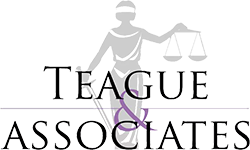FAQ
Bankruptcy
-
What Is a Chapter 7?
A Chapter 7 is known as a straight bankruptcy. This type of bankruptcy wipes out all of your unsecured debt with a few exceptions. Debts that are discharged in Chapter 7 include credit cards, medical bills, payday loans, repossessions, deficiencies on foreclosures, certain judgments, etc. In most cases, it also stops garnishments and bank levies. Types of debts that are not discharged include student loans, certain taxes, domestic support obligations, and secured debts. There are income limits based on household size that must be met to file and qualify for a Chapter 7 bankruptcy.
-
What Is Chapter 13?
Chapter 13 is known as the wage earners plan. It is a repayment plan based on income and certain debts. The misconception is that Chapter 13 is a full repayment of all of your debt. This is not true in most cases. Chapter 13 is a repayment plan based on income. In a lot of cases, you are only paying for things you are keeping, like a car, home, and other debts that are not discharged. Chapter 13 is often used to stop a foreclosure or to help you keep a car that you are behind on. There are no income limits to file a Chapter 13, but income will affect the Chapter 13 plan payment. There are debt limits to be able to file a Chapter 13.
-
Can I Keep My Car or House if I File for Bankruptcy?
In short, yes. However, for practical purposes it depends on whether you are current on the payments and whether you can afford to keep the vehicle or home. These factors will not prevent you from filing a bankruptcy but while effect which chapter of bankruptcy will be in your best interest.
-
Why Do I Need an Attorney for My Bankruptcy?
The court does allow you to file a bankruptcy on your own. However, it is not usually a good idea. The trustee and the court will hold you to the same standards as an attorney. What this means is that if you do not know how to fill out the forms and do not attach exemptions to your property, do not list assets that the trustee finds, etc., you can end up losing your property or even have your case referred to the FBI for bankruptcy fraud. In the big scheme of things, paying an attorney is well worth ensuring that your property is protected. As long as you are disclosing all of your income, property, creditors, etc., to your attorney, then there will be no fraud issues either. The bankruptcy petition, requirements, and deadlines can be confusing to someone who is not qualified in the area of bankruptcy.
Traffic
-
Why Should I Hire an Attorney for My Traffic Ticket Instead of Just Paying the Fine?
Traffic tickets cost you more than just the fine. If you decide not to hire an attorney for your moving violations, you will likely receive points on your license. Points on your license increase your car insurance premiums, which, over time, will cost you more than the additional money for attorney's fees. Also, there is a limit to the number of points that you can have on your license before your license is suspended or revoked. It will be worth it in the end to pay the attorney and the related fines to avoid points on your license.
Our Testimonials

I would recommend Teague and Associates to everyone. The services that Morgan provides is Top Tier! I was able to get my questions answered in a timely manner, as well as my emails. She was EXTREMELY patient with me! I had a lot of questions. I am thankful for all that Morgan has done for my family and I. You’re the BEST!
— Brianne M.

Morgan was very responsive through my whole case. She got back to me within 24 hours every time and I often had questions. I would recommend her!
— Kate F.

Very professional! I had no clue what i was getting myself into , i was very nervous in the beginning she walked me through everything and was very patient with my husband and i ! I would recommend morgan Teague to anyone ❤️
— Kieara P.

Morgan was such a a blessing she truly took the time to quickly and efficiently file my case an alleviate the anxiety. This was an amazing experience
— Becki R.

Morgan Teague was easy to talk to and answered my questions in a timely manner. I will definitely recommend her to family and friends.
— Michelle B.
